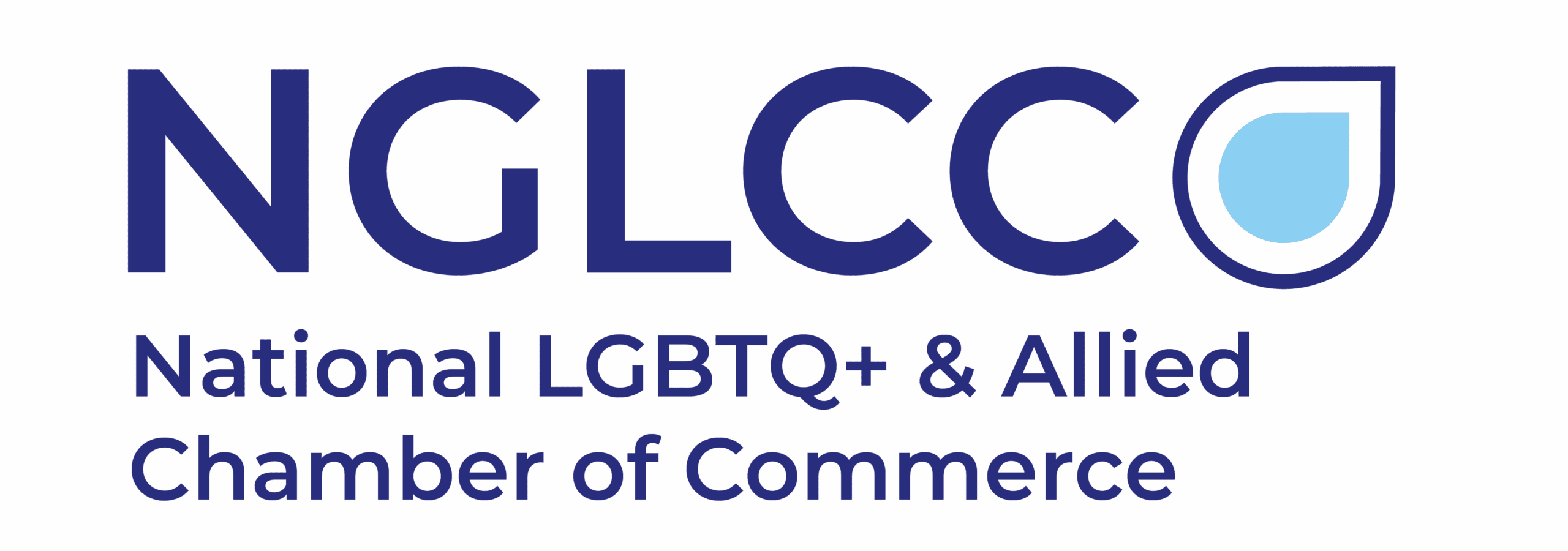On Wednesday, August 11th, the NGLCC Trans and Gender Non-Conforming Task Force (TGNCTF) joined with Certified LGBTBE® Punch Card Films in a webinar on “Navigating the Legal & Healthcare Systems While Transitioning.” Sabrina Kent, Senior Vice President at NGLCC, welcomed the audience for the exciting event, and introduced moderator Ashley Brundage (she/her), founder and President of Empowering Differences and co-chair of the TGNCTF Community Outreach Committee.
Punch Card Films is a queer-centric video production company, currently producing a feature documentary titled “A Trans Story.” This revolutionary film follows a trans couple on their path to transitioning over the course of five years.
The first panelist was Thomas Odell (he/him), a Visiting Assistant Professor of Legal Practice Skills at Suffolk University Law School. Odell has opened his own firm as a litigation practitioner in New York City. Considering one of the main legal obstacles transgender people face is name changes , Odell explained how most states have common law supporting this, and many legislatures have enacted an official recognition process. This may consist of a required court session, judge approval, and more, but recent changes favor a shorter, stream-lined process. Pro-trans legal alterations to pre-existing practices include prohibition of courts providing notice to immigration services, as well as the option to seal the case and thus protect the individual’s dead name.
Although Odell discussed how much easier the process for name changes has become, gender marker changes are still rather complicated. Previously, a doctor’s note was a required submission portion to the Department of Motor Vehicles for licenses and other forms of identification, but medical proof is no longer needed. The Biden-Harris administration does not require medical evidence for passport gender marker changes as well, demonstrating that progress is happening, albeit slowly. Those looking for trans-related legal assistance in the NYC area can reach out to the New York Legal Assistance Group.
Panelist Nicky Easterday (they/them) is a health attorney and advocate who specializes in the Affordable Care Act and how it intersects with queer bodies. As an expert, they expressed that the insurance and health care system is complex and difficult to navigate regardless of transitioning. For anyone wanting concrete information on their specific coverage, paying attention to both the planned contract and clinical criteria in writing is essential. Easterday explained that the majority of barriers to gender-affirming care are found within written clinical criteria, with more feminizing procedures as the most restricted.
Remaining categorical barriers, however, could be removed with recent Supreme Court case decisions. Minors represent the most restricted group even within the trans community, as access to and coverage for surgical intervention is typically denied. The most useful resource Easterday suggests for the trans community to take advantage of for healthcare related issues is TLDEF, the Transgender Legal Defense & Education Fund.
The third panelist to speak was Elizabeth Schwartz (she/her), a nationally recognized advocate to the queer community with over 25 years of experience in LGBTQ+ legal aid, and author of “Before I Do.” Schwartz discussed the importance of institutes like the National LGBT Bar Association, which is composed of vetted lawyers dealing with family equity among a variety of other fields. Despite the 50th state lifting the ban on gay and lesbian parents adopting children in 2010, caseworkers still can express bias and perpetuate inequalities for queer families seeking to adopt.
Schwartz also highlighted the importance of culturally competent and trans friendly adoption agencies and lawyers. For those who are discriminated against, the National Center for Lesbian Rights or the National Center for Transgender Equality can provide helpful legal assistance. This biggest challenge most face, as Schwartz described, is not knowing their legal rights, which leaves many vulnerable to mistreatment by agencies.
Panelist Kila Emmons (she/her) is the Program Manager and Coordinator for Trans Services at Metro Inclusive Health, a community center devoted to LGBTQ+ health and resources. Emmons urged the audience to utilize community organizations like Metro Inclusive Health, which offers behavioral health therapy, HRT services, letters of recommendation and support, primary care, HIV advocacy, and more. If you don’t have a city resource, however, there are alternatives available. Since the beginning of the Covid-19 pandemic, virtual options for physical and mental have risen dramatically, introducing greater accessibility.
Resources are not limited to those exclusively within the trans community, and many organizations offer help for allies of those who are transitioning. For instance, Metro Inclusive Health includes therapy for the main client’s family and support group, in order to help all involved within the transition. As a trans woman herself, Emmons utilizes her lived experiences to connect with and aid other trans people. Above all, Emmons highlighted the significance of receiving trans inclusive mental health care, which can be a difficult, long process that ultimately produces positive change and growth.
NGLCC would like to extend thanks to Punch Card Films and Ashley Brundage for presenting this webinar opportunity. Our array of panelists offered invaluable advice to the trans community, as well as a number of resources for health care and legal aid. A special thank you goes out to Thomas Odell, Nicky Easterday, Elizabeth Schwartz, and Kila Emmons for their expertise and consideration.
**
For the full recording, click here!
